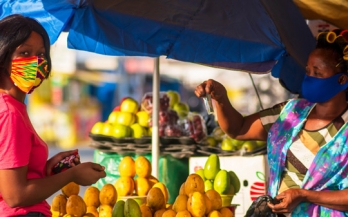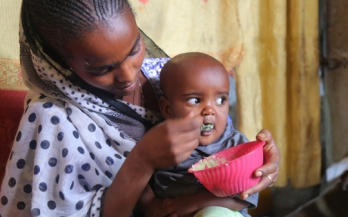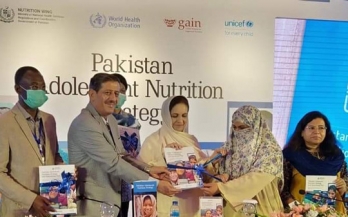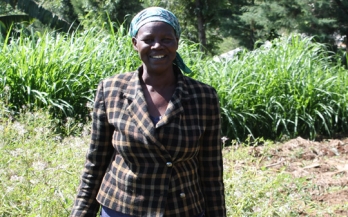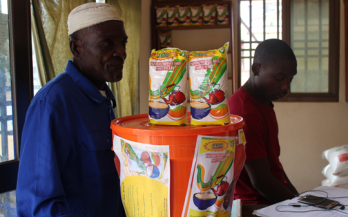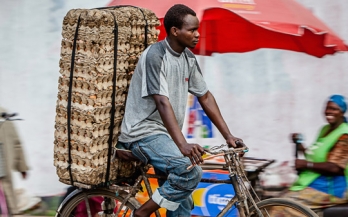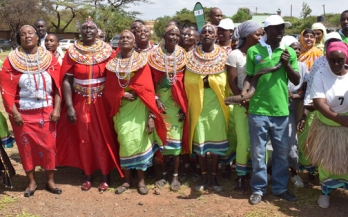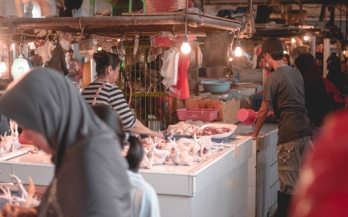Here comes the third wave. Like the first COVID-19 wave and the second wave, we cannot know in advance its peak, scale, or duration. I often think that things could have been different if we could have predicted the pandemic’s impact, but we were found to be ill-prepared. If we had relevant information and better disaster preparedness, we might all be living differently by now, I guess.
Markets are central to any community: a place where people buy their food and other essential products, but markets are places where the COVID-19 virus can spread quickly. GAIN launched a unique initiative a communications toolkit that provides practical guidance to keep markets safe thanks to communication tools with tips tailored to customers, vendors and market authorities.
Small and medium-sized enterprises (SMEs) shoulder responsibility for around 50% of the food production and 70-100% of food sales in sub-Saharan Africa for key foods such as fruits and vegetables, animal-source foods, and cereals and legumes. As Ethiopia’s population is swiftly shifting to more urban environments, so are food habits, with 83% of foods and beverages purchased in markets, as opposed to 47% in rural areas.
A joint undertaking by the Global Alliance for Improved Nutrition (GAIN), the Government of Pakistan, UNICEF and The World Health Organization (WHO), the Pakistan Adolescent Nutrition Strategy and Operational Strategy (PANS) examines the nutritional status of a long-overlooked population and charts out a bold road map for action.
Healthy Diets for Tea Communities is a coalition led by the Global Alliance for Improved Nutrition (GAIN) and the Ethical Tea Partnership (ETP), with funding from with eight leading tea companies to address poor nutrition in tea supply chains in Assam (India), Kenya, and Malawi.
In the midst of the global COVID-19 pandemic, food fortification is a critically important tool for addressing and preventing malnutrition. 6-months into the pandemic, some of the world’s leading development organisations, including UN agencies and international non-governmental organizations in the fortification space, explain how the pandemic is impacting national food fortification programs and recommend actions that should be taken to protect fortification programs at this critical time.
Eggs are packed with essential fatty acids, vitamins and minerals, but too few enjoy access to this critical source of protein. This week, GAIN is celebrating this "super food" and honouring the contributions of "food heroes" - individuals who throughout the COVID-19 pandemic have continued to bring eggs to market and onto the table, especially for young children.
For many adolescents, COVID-19 has meant school closures, little contact with friends and a frustrating barrier to their lives and livelihoods. As difficult as those challenges are, however, the coronavirus has had even more serious repercussions. Namely, food and access to it. Although the data is still coming in, it appears that COVID-19 could reverse decades of hard-won gains when it comes to food security.
A new five-year USAID-funded project called NAWIRI – Nutrition in ASALs Within Integrated Resilience Institutions – aims to tackle this, building resilience in the region, including through development of local food systems. In Swahili, NAWIRI means "to appear nourished" or "to thrive".
More than half the world’s population currently lives in urban areas, and this is expected to increase to 70% by 2050. Growing urban populations demand more from our planet in terms of natural resources and the need for greater innovation in health, nutrition, quality and energy has become a priority.
